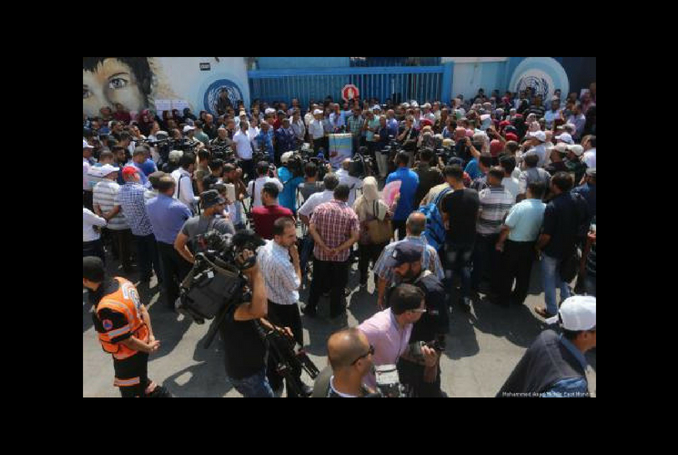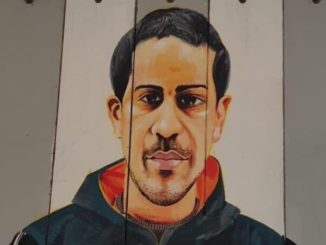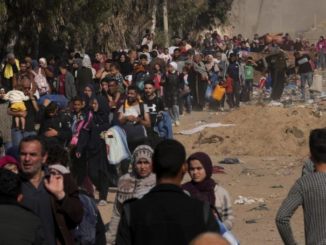
By Ramona Wadi
The UN’s 2030 Agenda for Sustainable Development, which “seeks to strengthen universal peace in larger freedom” is an ideal dissociated from the realities perpetuated by the international community. Far from promoting sustainable development, the political actors in this charade are deciding the trajectory of human rights violations.
Indeed the international community has demarcated the difference between rhetoric and action, to the point that the sustainable development goals will, in due course, become no different from the humanitarian endeavors which the UN embarks upon to avoid tackling the impunity it has generated for the aggressors.
In the case of Palestine, how is the two-state paradigm, promoted by the UN as the only “solution”, supposed to contribute to the sustainable development goals?
At the annual UNRWA pledging conference held last month in New York, reference was made to the agency’s work being in line with the 2030 goal “to leave no one behind”. UNRWA is almost entirely dependent upon voluntary donations, which offers no security for Palestinian refugees’ immediate well-being, let alone moving towards sustainable development goals.
Meanwhile, Palestinian dependence upon UNRWA is linked directly to the international community’s refusal to force a decolonization process and enable Palestinians to return to their land.
Can the UN speak of no one being left behind after facilitating Israel’s colonization and taking no steps to eradicate it, contrary to its goals of eliminating colonialism?
The sustainable development goals lack specific context. When speaking about Palestinians, the international community only emphasizes the humanitarian aspect, which is the easiest to speak about due to the normalization of the Palestinians’ predicament, notably their loss of political rights.
According to the Palestine 2030 report,
“Until there is a permanent peace agreement, political instability and the occupation will remain the primary obstacles to making development gains.”
If Israel, aided by the international community, is the main impediment for Palestinians with regard to the 2030 agenda, why is the UN not addressing the source of the violations — the occupation state of Israel — which has reduced the people of Palestine to a set of statistics?
A recent statistic from the Palestinian Prisoners Affairs Committee, for example, shows that 2,759 Palestinians have been detained by Israel since the beginning of 2019. SDG Goal 16, which focuses on justice and state institutions, is a far cry from being implemented in occupied Palestine.
The Palestinian Authority’s facilitation of the incarceration process – by collaborating with Israel’s colonial violence in the occupied West Bank – is not scrutinized by the international community but is rather deemed to be an integral component of the process allegedly bequeathing “peace” to Palestinians.
UN Secretary-General Antonio Guterres has called for the international community to “rise to the challenge and empower UNRWA to continue its important and impressive work.” Empowering UNRWA works in concordance with increasing the human rights violations against the Palestinian population.
If the need for UNRWA still exists, it means that Palestinians are far from achieving the sustainability necessary for their independence and prosperity. Instead of hiding behind unnecessary plaudits and grandiose schemes that are destined to fail, the UN should prioritize decolonization as the primary step towards achieving sustainable development in Palestine.
– Ramona Wadi is a staff writer for Middle East Monitor, where this article was originally published. She contributed this article to the Palestine Chronicle.







